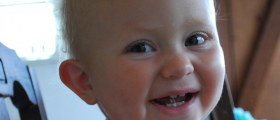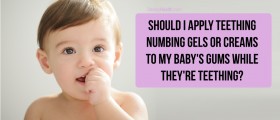
Teething pain can be alleviated with teething gels that are applied directly to the gum, baby Tylenol, or teething rings (You can find more on how to soothe teething pain in infants by clicking the link). But, other than those temporary measures to make teething easier on your baby, there is not much parents can do.
Besides that, teething is a normal and natural process that does not come with any medical concerns it doesn't require any specific action, and the discomfort will go away when the tooth erupts. It is important to pay attention to your baby's symptoms and to critically assess whether your crying and unhappy baby is teething... or something else is causing him the discomfort that makes him cry.
There are other reasons, reasons that do require medical care, that can result in a baby that won't stop crying. The symptoms of a baby's teething include:
Crying and fussing Refusing the breast or a bottle, or being very restless during feedings Drooling Biting on every appealing thing your baby encounters Swollen gums, sometimes with white patches already visible underneath Fever although some medical experts deny the link between fever and teething, nearly every mom has witnessed this Diaper rashIf your baby is constantly crying, but has none of the other symptoms, please take your baby into his doctor to rule out other causes of pain. Your baby's pediatrician can also be helpful in recommending remedies and medications to battle teething pain.

















Your thoughts on this
Loading...